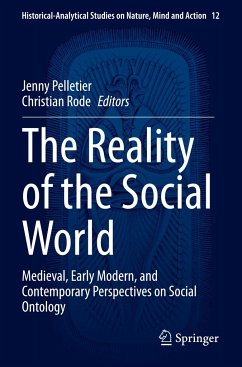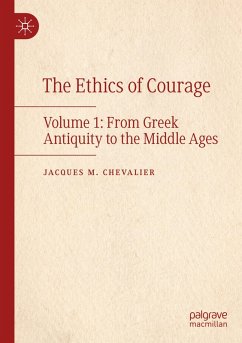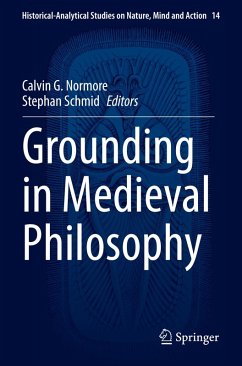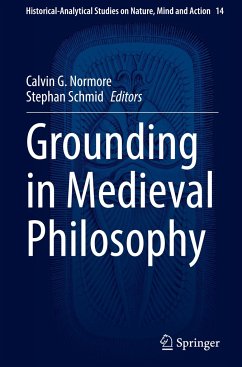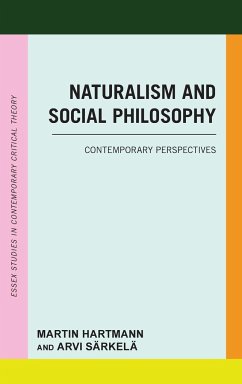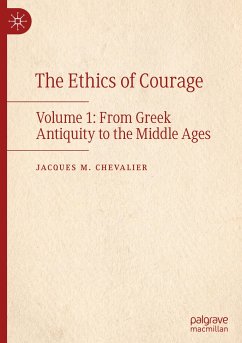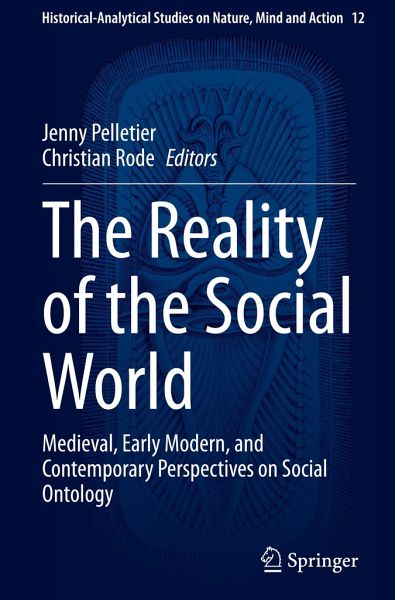
The Reality of the Social World
Medieval, Early Modern, and Contemporary Perspectives on Social Ontology
Herausgegeben: Pelletier, Jenny; Rode, Christian

PAYBACK Punkte
46 °P sammeln!
This book offers a collection of contributions on medieval, early modern, and contemporary perspectives on social ontology.Since the 1990s, social ontology has emerged as a vibrant research area in contemporary analytical philosophy. Questions concerning the nature and properties of social groups, institutions, facts, and objects like money and marriage, have been thoroughly discussed. However, the historical perspective has been largely neglected. One of the central aims of this volume is to show that relevant views on social ontology can be found in medieval and early modern philosophy (ca. ...
This book offers a collection of contributions on medieval, early modern, and contemporary perspectives on social ontology.
Since the 1990s, social ontology has emerged as a vibrant research area in contemporary analytical philosophy. Questions concerning the nature and properties of social groups, institutions, facts, and objects like money and marriage, have been thoroughly discussed. However, the historical perspective has been largely neglected. One of the central aims of this volume is to show that relevant views on social ontology can be found in medieval and early modern philosophy (ca. 1200-1700 C.E.), when, for example, the ontological status of money, law, and the sacraments was hotly debated. We see, furthermore, diverging positions between Aristotelian-inspired authors, who resort to a more naturalistic view of the emergence of the social realm, and authors like Olivi and Ockham, who emphasize the role of human free will and contractualist agreements.
This book is the very first to address historical and contemporary social ontologies. Both historians of philosophy and philosophers will benefit from this juxtaposition, which fosters a better understanding of historical positions and approaches by using today's conceptual and analytical tools, and allows the contemporary debate to gain new perspectives by confronting its own medieval and early modern history.
Since the 1990s, social ontology has emerged as a vibrant research area in contemporary analytical philosophy. Questions concerning the nature and properties of social groups, institutions, facts, and objects like money and marriage, have been thoroughly discussed. However, the historical perspective has been largely neglected. One of the central aims of this volume is to show that relevant views on social ontology can be found in medieval and early modern philosophy (ca. 1200-1700 C.E.), when, for example, the ontological status of money, law, and the sacraments was hotly debated. We see, furthermore, diverging positions between Aristotelian-inspired authors, who resort to a more naturalistic view of the emergence of the social realm, and authors like Olivi and Ockham, who emphasize the role of human free will and contractualist agreements.
This book is the very first to address historical and contemporary social ontologies. Both historians of philosophy and philosophers will benefit from this juxtaposition, which fosters a better understanding of historical positions and approaches by using today's conceptual and analytical tools, and allows the contemporary debate to gain new perspectives by confronting its own medieval and early modern history.





